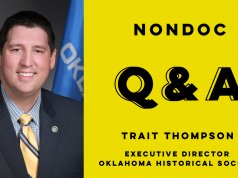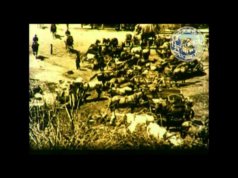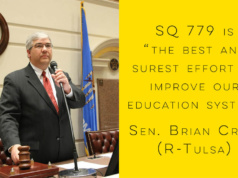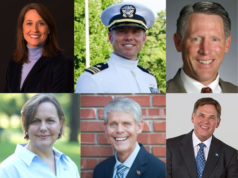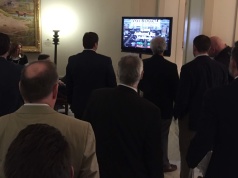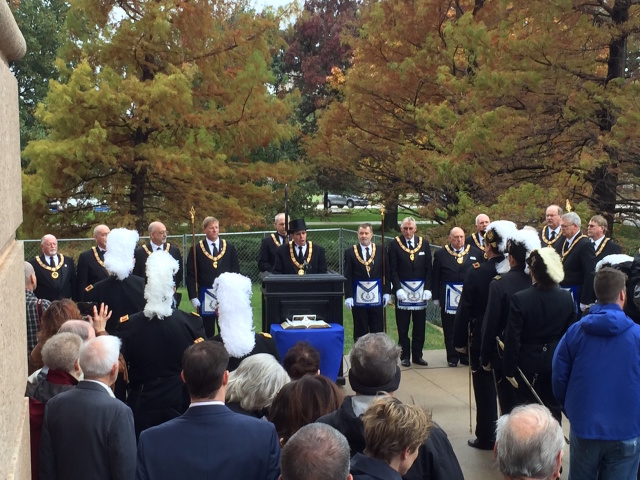

A few dozen freemasons donned their fraternal regalia Monday and commemorated the 100th anniversary of the Oklahoma State Capitol’s cornerstone laying.
For many who watched outside the Capitol, it was likely the first time they had seen members of the centuries-old, international organization with their ceremonial aprons, fuzzy hats and swords.
“They’ve been more open in the last 20 years about their history,” said Oklahoma Historical Society executive director Bob Blackburn. “I believe in the 1980s, the Oklahoma Masons decided to open up their facilities and be much more public and educational. You see it through sponsorship of programming on OETA. You see it in opening the consistory in Guthrie.”
Oklahoma’s Grand Masonic Lodge in Guthrie is the state’s central governing institution of freemasonry, though more than 220 lodges house more than 20,000 masons in Oklahoma.
But leaders would like to see that number go up.
“Membership has been in a decline,” said Dudley Ridge Smith, grand master of Oklahoma’s Masonic Grand Lodge. “According to the Oklahoma Historical Society, masonry was just under 90,000 in 1958. Right now we’re about 21,000 to 22,000.”
Smith was sworn into his grand master position on Saturday. He will serve a one-year term.
“Of course, declining membership is a problem. It used to be the masonic lodges were the social centers of the towns where people went to socialize. Well, TV came, Internet came and all that, and people don’t socialize as much. Although, it appears to me that people are more socially active today than they have been in recent years. It seems to be increasing.”
Smith spoke during Monday’s ceremony, as did Blackburn and State Treasurer Ken Miller. A few legislators were in attendance, including Sen. Brian Crain (R-Tulsa).
“I think masonry has great teachings,” said Crain, an attorney. “I think the challenge that masonry has is that there’s so much that is going on in people’s lives today that they worry more about what is immediate and what is in front of them rather than what’s important and how they want to spend their lives.”
Smith and Crain spoke proudly of their experiences as masons and noted that changing times have led members to discuss the organization more publicly than they once might have.
“I’m going to make a distinction (…) between being a secret society and a society with secrets,” Crain said. “If you watch the History Channel, they’ve got masonry all over everywhere. If you’ll go on my website, you’ll see it lists me as being a mason. It’s not anything I try to keep secret. But masonry is an organization that does not ask people to join; you have to ask to join masonry.”
Smith also noted the misconception.
“In my father’s day, masons just didn’t talk to anybody about how to join. Now, we’ve become somewhat more open,” he said. “It’s just like any fraternity — we have secrets in our fraternity. But we are very, very open as far as membership. I’ve got masonic symbols on my car. We are not really a secret order, but like any fraternity, our meetings are secret.”
One thing that’s not a secret is the impact of the Masonic Charity Foundation of Oklahoma, which has more than $83.8 million in assets according to the latest data posted on its website. In 2013, the foundation provided more than $3.9 million in direct grants to community and nonprofit organizations.
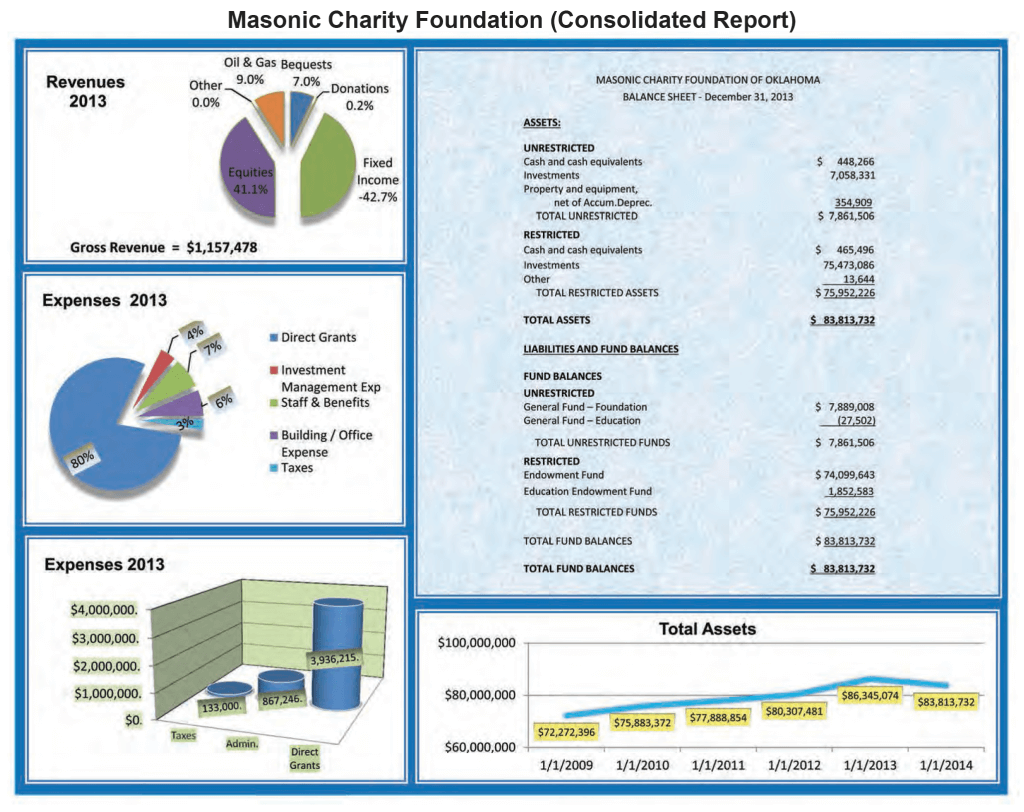
“It’s a wonderful fraternity, and it does a lot of good,” Smith said. “We are basically good men trying to make good men better. That’s our philosophy.”
It’s a philosophy with fewer adherents than it once had, and lodge photos posted online offer an impression of a predominantly white and predominantly older brotherhood. That could be seen as unappealing for younger generations that are growing up in an increasingly multicultural world.
But Smith offered some perspective.
“We have Democrats, Republicans, independents. All kinds of different people,” the 70-year-old Vietnam veteran said. “Our values — integrity, charity, friendship, brotherly love — those are things we build on and are devoted to. We have different religions. Most of the masons in America are Christian, but here in Oklahoma we have Muslims, we have Shinto, we have Jewish people. There are protestants, Catholics. It is very non-judgmental. We want good men, and good men come in all shapes and sizes.”
Smith, also a retired teacher whose home lodge is in Yukon, pointed out that the Order of the Eastern Star is a masonic chapter which admits women into its fraternity. He also noted the Prince Hall branch of masonry, which formed in North America in the 18th Century when blacks were not allowed to join American masonic lodges. Booker T. Washington, Thurgood Marshall and W.E.B. Dubois were all Prince Hall masons, and the branch has its own leadership and grand masters across the country.
Multiple attempts to reach Prince Hall Oklahoma Grand Master Deary Vaughn on Monday were unsuccessful.
Crain said masonry as a fraternity is “somewhat stable” and “staid.”
“What I think’s happening is that we live in such changing times (…) and I think that masonry has tried at times to be more current in how things work, but life changes so much more rapidly than masonry can respond,” Crain said. “I think masonry has said, ‘OK, we are going to be true to our values, we’re going to be what we are and be proud of it.’
“I could talk about masonry all day.”
(Editor’s Note: This story was updated to correct a homophone error.)









